 |
 |
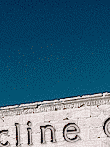 |
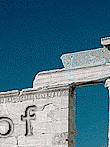 |
 |
 |
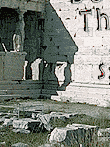 |
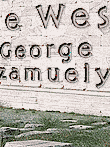 |
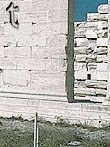 |
 |
July 20, 2000EU vs. NATO:
|
|
|
Clinton urged the European to invite Turkey to join the EU. This is a longstanding American demand. The Europeans are too polite to give the appropriate response. If Washington is so worried about the exclusion of Turkey, why does the United States itself not invite Turkey to become the 51st state? Americans and Turks have at least as much in common as Europeans and Turks. Clinton also suggested that the European Union lets Russia become a member. "The alternative would be a future of harmful competition between Russia and the rest, and the end of our vision of an undivided continent." This from the head of an Administration that overrode Russian protests as it expanded NATO. The United States even wants the Baltic states in NATO – something that infuriates most Russians. The Europeans know very well what is behind this sudden US solicitude for Russian feelings. With Russia in the EU, Europeans will be bogged down trying to address that vast country’s insuperable problems for at least two generations. And Europe could forget about becoming a great power. The Europeans thanked Clinton for his advice and ignored it. There is yet another alternative, one favored by the American Right and certain sections of the British Tory establishment. Great Britain should be invited to join the North Atlantic Free Trade Association (NAFTA). The idea is the brainchild of a small band of Anglo-Americans hanging around Margaret Thatcher and a few "neo-conservative" think tanks. In Britain it is vigorously promoted by the Telegraph newspapers and Tory think-tanks like the Center for Policy Studies. It bears the hallmarks of the armchair geostrategists who are forever unhappy that the United States is not bombing long or hard enough. Steve Forbes and Newt Gingrich have both called on Britain to join NAFTA. Last December during the Presidential campaign, Senator John McCain declared: "I would welcome any country into NAFTA that would lower their barriers to US goods and services, but I would prefer somebody like the British because we have such commonality of interests. I worry about the very ugly specter of protectionism raising its head in the EU." A few days ago Senator Phil Gramm was in London addressing the Center for Policy Studies. The "special relationship" between the US and Britain was so "special," he explained, that a British request to join NAFTA would be treated differently "from any other trade agreement" under negotiation. A British attempt to join would be an "enforcing action" to stop the EU becoming a block on global free trade. The Britain/NAFTA scheme is dastardly in its cunning. Britain, as a signatory to the Treaty of Rome, cannot enter into trade agreements with anyone outside the EU. So if Britain is in NAFTA, it is effectively out of the EU. The British people might accept withdrawal from the EU if they have another club to join. With Britain out of the European Union, a number of the smaller powers will start getting cold feet about signing up for an enterprise so dominated by France and Germany. And so they too might decide to jump ship. Indeed, without Britain to lean on, France too might start getting nervous about falling under the thumb of Germany. It might respond by going back to de Gaulle’s idea of a Europe of nation states and perhaps draw closer to Great Britain, the United States and NATO. Thus everything will work out and everyone will be happy. The British Foreign Secretary Robin Cook described the idea as "barmy." It is – much like most of the nonsense that emanates from Conservative circles on both sides of the Atlantic these days. There is one alternative left and is the one, I believe, the United States will opt for. It will try to build a new alliance of states to rival the European Union. The alliance would include a number of the states of East and Central Europe, particularly those resentful at having been left out of the European Union. Included also would be Ukraine, a number of the oil-rich states of Central Asia, and trusted satellites like Shevardnadze’s Georgia. Included also, would be such traditional client-states like Turkey, Israel and Egypt. The United States will also try to exclude the European Union from the Balkans. Of course, the United States could do the intelligent thing and not stand in the way of Europe. But that is the least likely outcome. Please Support Antiwar.comSend contributions to Antiwar.com or
Contribute Via our Secure Server |

